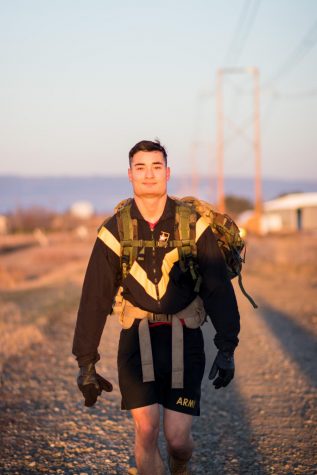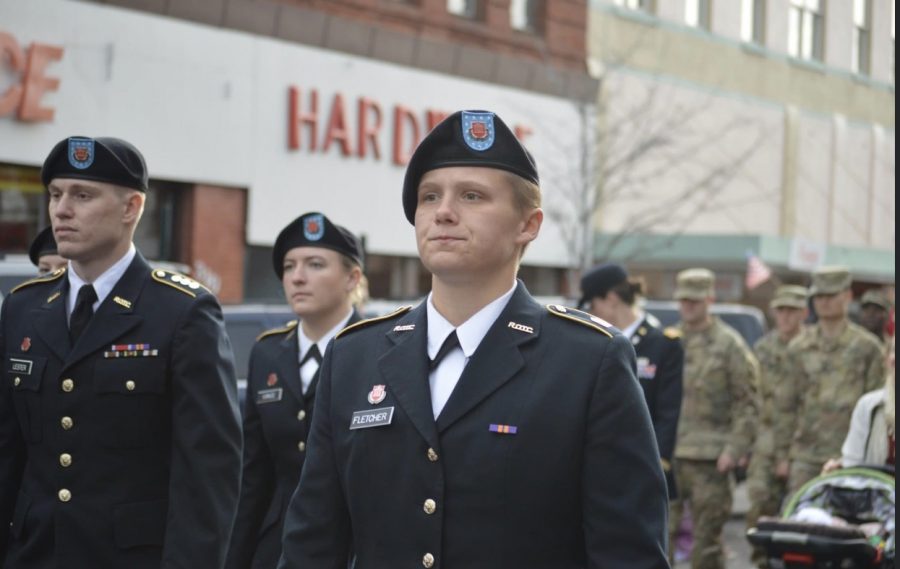ROTC cadets experience a new kind of training
June 3, 2020
During past quarters, with in-person classes and no social distancing regulations, students might have occasionally seen ROTC cadets training around campus.
This quarter, to make sure those in the program are still getting the training and support they need, the ROTC has had to make some changes.
“I believe we’ve adapted really well,” Professor of Military Science Lt. Col. Bonnie Kovatch said. “Some of the underclassmen … clearly miss the face-to-face interaction and the community that comes along with our program, but they’re really excited at the challenge they’ve been given.”
Jane Schultz, a junior physics and mechanical engineering major, is in her second year of the ROTC program and said this quarter has been just as valuable as any other.
“Before the pandemic, we would do tactical training and the actual movement part,” Schultz said. “But now that everything’s online, we’ve been focusing on the planning aspect of that.”
At the end of spring quarter, 18 cadets will be graduating. In summer, two more will also graduate.
With less emphasis on the physical training part of the program, Kovatch said students are feeling more confident about their mental agility.
“They feel like they now are more military book-smart than we would’ve expected them to be at this point in their ROTC education,” Kovatch said. “That’s encouraging to hear.”

Even though the focus of the program has been on planning and preparation, ROTC cadets are still participating in physical training by using an app called Strava.
The app tracks the cadets as they exercise using GPS data, and it allows them to share their results.
According to Kovatch, ROTC’s curriculum is provided by the U.S. Army Department for Leader Education.
Different subjects are taught to students depending on their standing within the program.
Charlie Murphy, a freshman law and justice major, is in her first year of ROTC and said leadership training is one of the most impactful parts of the program.
“The leadership training is amazing,” Murphy said. “You learn how to guide people in the right direction, make sound choices and have good judgment.”
ROTC mainly uses Canvas and Microsoft Teams as a means of communication. Kovatch said the students within the program continue to connect with their fellow cadets even after lessons end for the day.
“They’re finding these other applications to hold study sessions together, to play games and host movie nights together although everyone is separated,” Kovatch said.
Murphy said the cadets in the program are practically a family.
“We’re all really good friends,” Murphy said. “We hang out all the time. We always joke about how we spend hours and hours together every day … I enjoy the comradery of it all.”
Kovatch said the program’s reaction to COVID-19 has almost been like an unexpected on-the-job training for students.
“I think the army and ROTC specifically is really an education in how to be resilient and flexible, and we talk a lot about adaptive leadership,” Kovatch said. “That’s exactly how we’ve approached our reaction to COVID-19. I’m super proud of all the cadets and how well that they have adapted, how committed they remain and how brilliant they’ve been in supporting each other.”



